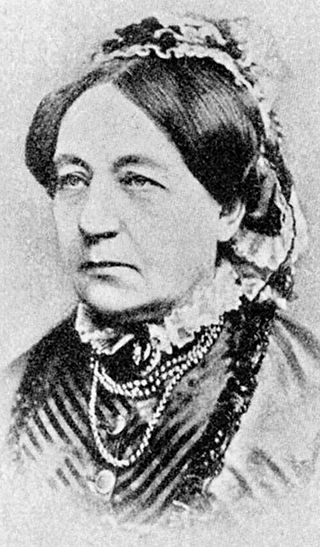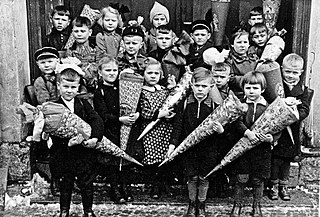Related Research Articles

Hans von Baysen or Jan Bażyński was a Prussian knight and statesman, leader of the Prussian Confederation and the first Polish governor of Royal Prussia.

Herfried Münkler is a German political scientist. He is a Professor of Political Theory at Humboldt University in Berlin. Münkler is a regular commentator on global affairs in the German-language media and author of numerous books on the history of political ideas, on state-building and on the theory of war, such as "Machiavelli" (1982), "Gewalt und Ordnung" (1992), "The New Wars" and "Empires: The Logic of World Domination from Ancient Rome to the United States". In 2009 Münkler was awarded the Leipzig Book Fair Prize in the category "Non-fiction" for Die Deutschen und ihre Mythen.

Johannes Fried is a German historian, professor, and medievalist.

The Casino faction was a moderate liberal faction within the Frankfurt Parliament formed on June 25, 1848. Like most of the factions in the parliament, its name was a reference to the usual meeting place of its members in Frankfurt am Main. Casino was the largest and most influential faction at Paulskirche. Its members were for the most part national liberals.

During World War II, Nazi birthing centres for foreign workers, known in German as Ausländerkinder-Pflegestätte, Ostarbeiterkinderpflegestätten, or Säuglingsheim were German institutions used as stations for abandoned infants, Nazi Party facilities established in the heartland of Nazi Germany for the so-called 'troublesome' babies according to Himmler's decree, the offspring born to foreign women and girls servicing the German war economy, including Polish and Eastern European female forced labour. The babies and children, most of them resulting from rape at the place of enslavement, were abducted en masse between 1943 and 1945. At some locations, up to 90 percent of infants died a torturous death due to calculated neglect.

Louise Otto-Peters was a German suffragist and women's rights movement activist who wrote novels, poetry, essays, and libretti. She wrote for Der Wandelstern [The Wandering Star] and Sächsische Vaterlandsblätter [Saxon Fatherland Pages], and founded Frauen-Zeitung and Neue Bahnen specifically for women. She is best known as the founder in 1865 of the General German Women's Association.

Ingeborg Drewitz was a German writer and academic.
Erich Kern, was a far-right Austrian journalist, war-time propagandist, and a post-war Nazi activist. He became a writer of revisionist books that sought to glorify the activities of the German soldiers during the Second World War.
Heinz Schilling is a German historian.
Siegfried Obermeier was a German author of historical novels and popular history books. He was editor of The Secret Diaries of Ludwig II of Bavaria 1976. In 1978 he issued his first novel, initially under the penname Carl de Scott, a novelisation of the second life of Judas Iscariot. His Jesus in India book "Starb Jesus in Kaschmir?" made it to the Year Bestseller List of the Spiegel in 1983.

German childhood in World War II describes how the Second World War, as well as experiences related to it, directly or indirectly impacted the life of children born in that era. In Germany, these children became known as Kriegskinder, a term that came into use due to a large number of scientific and popular science publications which have appeared increasingly since the 1990s. They describe the same phenomena from different perspectives, using diverse methods and various stylistic means. The literature on this subject has not yet been able to produce a universal and binding definition. However, there is consensus that the impact of war on children can be felt decades later, often increasing with advancing age, and that at times the impact can be passed on mute to subsequent generations.
Karin Flaake is a German sociologist and professor (retired) at the Carl von Ossietzky University Oldenburg. Her publications on the adolescence of young women and men are part of the literature of socio-psychologically oriented gender research. Another focus of her work is on the chances of changing gender relations in families.
Erika Trautmann-Nehring (1897–1968) was a German archaeologist and illustrator, most noted for her work with Franz Altheim on the petroglyphs of Val Camonica, Italy.
Johanne Philippine Nathusius was the founder, in 1861, of the "Elisabethstift", set up as an institution for looking after mentally handicapped boys from socially disadvantaged families. As the children grew to adulthood she expanded the remit of the "Elisabethstift" to embrace provision of education, specialist workshops and an auxiliary school for those in her care. Mindful that every individual had his own needs and potential, she took care to ensure that individually suitable employment opportunities were found. She was deeply influenced by her religious beliefs, and convinced that the sick and handicapped who were obliged to live out their lives on the fringes of society, were all loved by God, and she tried to give meaning to the lives of all those for whom she cared through the provision of appropriated education and work chances.
Franz Schnabel was a German historian. He wrote about German history, particularly the "cultural crisis" of the 19th century in Germany as well as humanism after the end of the Third Reich. He opposed Nazism during the Second World War.
Peter Baumgart is a German historian.
Rudolf Vierhaus was a German historian who mainly researched the Early modern period. He had been a professor at the newly founded Ruhr University Bochum since 1964. From 1971, he was director of the Max-Planck-Institut für Geschichte in Göttingen. He became known for his research on the Age of Enlightenment.
Irene Below is a German woman art historian.
Gotthold Frotscher was a German music historian and musicologist.
Friedrich Weissensteiner was an Austrian historian and writer.
References
- ↑ Luise Hensel (1798-1876) : Frauenleben in historischen Umbruchszeiten on Worldcat
- ↑ Mythos Jugend : Leitbild und Krisensymptom : ein Aspekt der politischen Kultur im 20. Jahrhundert on Worldcat
- ↑ Kriegskinder : zwischen Hitlerjugend und Nachkriegsalltag on Worldcat
- ↑ Leben mit und in der Geschichte : deutsche Historiker Jahrgang 1943 on Worldcat
- ↑ Töchter ohne Väter : Frauen der Kriegsgeneration und ihre lebenslange Sehnsucht on Worldcat